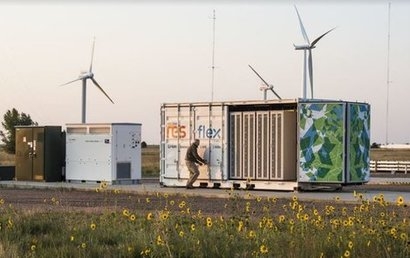
The report outlines how co-location could incentivise the development of battery storage and the expansion of a variety of energy sources including solar and wind power, as well as low-carbon hydrogen production. It could also help to accommodate new energy needs such as an increase in electric vehicle charging.
Setting up a new site, especially for storage assets, is currently a long and often costly process, involving planning permission, leasing costs and establishing a grid connection. By co-locating a new renewable generation or storage asset behind an existing grid connection, developers will be able to both expedite and bring down the costs of developing the UK’s renewable generation capacity.
Savings can be made by reducing capital and operational costs through using existing infrastructure and land that would otherwise be under-utilised and by taking advantage of spare grid connection capacity. There is also the potential to co-locate the energy generation site with the demand site of a business, which could see savings by cutting the cost of importing the energy.
While cost savings are a primary gain of co-locating, an additional related benefit to adding a new asset to an existing one is quicker connection to the grid. With some storage assets facing a wait for a grid connection beyond 2030, co-location will speed up getting these online, which in a global energy supply crisis has never been more important.
“As the UK transitions to net zero, energy generation will become increasingly dominated by intermittent renewable generators” said Dr Matthew Chadwick, Lead Research Analyst at Cornwall Insight. “If we are to guarantee a consistent supply of energy, then more renewable generation and importantly increased energy storage will be essential. Despite this, concerns over planning permission, grid connectivity and leasing expenses are all putting up barriers. Through co-location of energy assets, we can utilise land that is already being used for renewables and storage, and use untapped grid capacity, cutting the cost and timeframe of expanding renewables - something desperately needed if we are to wean ourselves off unstable foreign energy imports. As co-location expands there will be an increasing number of case studies for renewable generators and developers to turn to for best practice, and most importantly the pitfalls to avoid. This could see the ironing out of some challenges and complexities that may have put people off co-locating in the past. Ultimately, if the UK wants to stay on track with its net zero transition, and secure energy supply for decades to come, co-location will need to be an essential tool in the process.”
For additional information:

